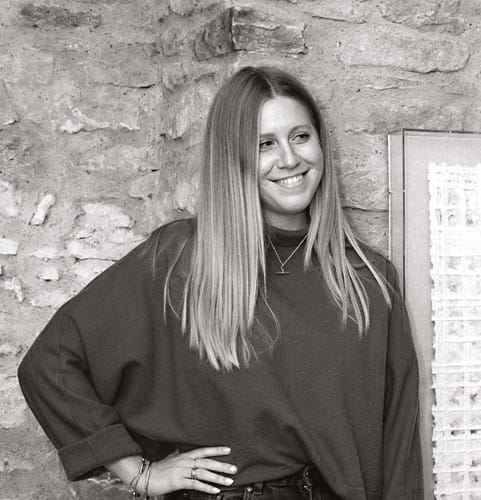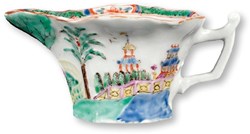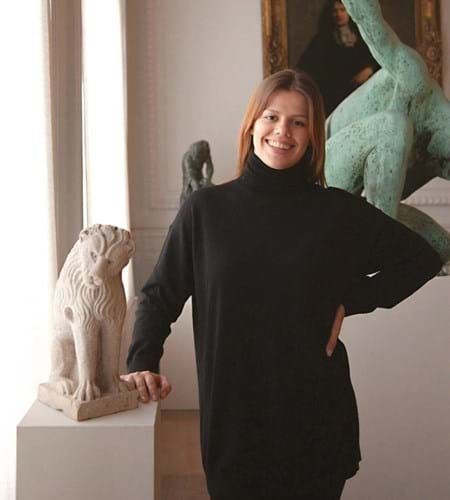
The pandemic has unleashed huge challenges for established businesses, let alone start-ups, but that has not stopped Hettie Reatchlous and Elena Nies.
These young entrepreneurs have embraced the hurdles – and the opportunities – of the last 12 months and launched their own London-based art businesses. (See also this week’s 5 Questions on facing page with young watch dealer Alex Stevens.)
In fact, if the pandemic had not happened, Reatchlous and Nies are uncertain they would be discussing their new ventures at all.
ATG brought them together for a joint Zoom call.
“Normally there are so many distractions in life, seeing friends in the evening and so on, so lockdown presented me with the perfect opportunity to look into starting a company,” says 30-year-old Reatchlous.
She launched Art Untamed in January after seven years as gallery director at Michael Goedhuis, a London dealership specialising in Contemporary Asian and Western art. The business is an art consultancy and online gallery with a focus on affordable Modern and Contemporary art ranging in price from around £250 to over £10,000.
Reatchlous also sources work “for private collectors, first-time buyers, interior designers or anyone in between” with budgets from £1000-200,000.
Family of art dealers
Nies comes from a family of sculpture dealers in Belgium and has been determined from a young age to enter the trade.
“Like a lot of people, the pandemic made me question what I wanted to do with my life. It felt like the right time to start my own business,” she says.
Previously she volunteered at the Museum Mayer van den Bergh in Antwerp, known for its Gothic and Renaissance period works from the Netherlands and Belgium, before moving to London. She worked for several UK dealers, including Peter Finer and Benjamin Proust, and at auction house Sotheby’s.
When a temporary work contract came to an end during the first lockdown, the 26-year-old set about turning her passion for sculpture into a business.
Nies Fine Art launched in December offering Asian, European and African sculpture with prices currently ranging from £1500 to £20,000. Nies also offers a research service on the side for clients who want their sculpture collections catalogued.
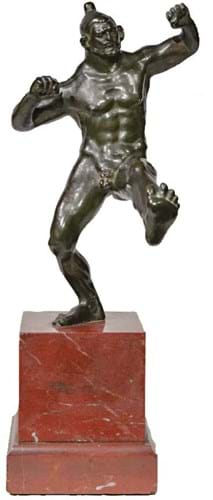
Pankration fighter, French, late 19th century, 10½in (27cm) high bronze – £22,000 from Nies Fine Art. No other 19th century casts are known of this model, which was cast after a Roman statuette in the Louvre.
As tech-savvy millennials, the pair have had no problems embracing the digitally driven world of the Covid-19 era.
“Hettie and I have managed to create a lot from just the internet. But we are still at a very early stage for the art trade on the internet and like many people we are experimenting with what does and doesn’t work,” says Nies.
They agree the hardest part of launching remotely has been how to strengthen trust, network and grow a client base without being able to do it in person.
“When starting a company, it is so important to build trust and lasting relationships and to do that only online has been very challenging,” says Nies. “At the same time, I have made some initial contacts so once things start opening up again, I’m sure business will take off.”
What about the challenge of Brexit now the UK has left the European Union?
Reatchlous predicts “shipping will be a bit of nightmare” but as the duo have done little business on the continent so far, the impact has been minimal.
Nies had a taste of Brexit deadline drama, however, when she had to dash across the Channel to bring back stock. “Before December 31 it was chaos because most of the sculptures I had were in Europe. My boyfriend and I had to pack up the car twice! If these pieces get sold to someone based outside the UK, it will be chaos again. But it’s all part of it and I definitely don’t feel too negative about it.”
Essential tool
For many dealers, travel (or the lack of it) has led to a greater reliance on Instagram. The art-friendly social media platform has also been an essential tool for artists during the pandemic.
“Normally I’d be going to graduate shows and directly to studios which I can’t do at the moment, so Instagram is a massive help. I can connect with artists all over the world,” says Reatchlous.
She admits there are definite downsides to Instagram - increased screen time being one of them - but says the pluses of the platform as a place of productivity and social change outweigh negatives.
For instance, the #ArtistSupportPledge - a project set up on Instagram to help artists during the pandemic by inviting them to sell works for up to £200 and then pledge to spend £200 on pieces by other participating artists – inspired Reatchlous to take on a number of ‘in-house’ artists who produce artwork exclusively for Art Untamed.
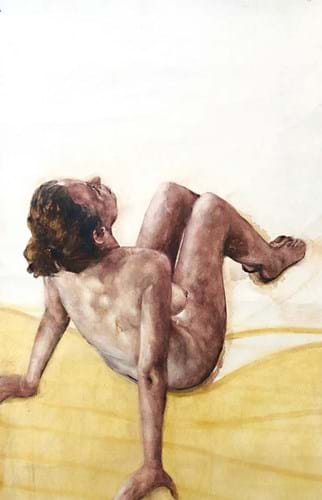
'Warm Cheeks' (2019) by Emily Ponsonby, 2ft 10in x 23in (87 x 59cm) watercolour and gouache on canvas – £3250 from Art Untamed.
As for selling on Instagram, Reatchlous says she has had some success here and reckons “people have become more trusting of buying online” since the start of the pandemic, but she has also found there is still a fairly modest price ceiling on how much people are prepared to pay for art not seen in the flesh.
This is especially true for sculpture, says Nies. “For me, dealing in three-dimensional objects on a two-dimensional platform is definitely a challenge. Sculpture has so much energy, it is really about touching it, seeing it. The online platforms have been more of a support than being key to selling pieces.”
Does this mean bricks-and-mortar will follow in time? Nies says: “I would love to have a permanent gallery space but I’m not really sure if that is the future.
“From my perspective, starting online with Instagram and a web page has already created quite a lot of movement. Once it is possible again, I want to combine my online presence with specific art events and fairs, which I believe could be a more suitable model for new art businesses.”
With galleries in London spending considerable sums on rent – premises they have been unable to properly access during lockdowns – demand is growing for alternative models that offer greater flexibility and lower overheads. Nies points to Cromwell Place, the recently opened large gallery hub in South Kensington, as leading the way in this area while also offering a “more playful and focused approach” to selling art.
Reatchlous says she would like to have a bricks-and-mortar premises but is put off by the costs of running one. Once restrictions have been lifted, her instinct is that a geographically flexible approach will be more beneficial to her business.
“I’m keen to do pop-ups in lots of different places and I’d love to do an exhibition in a completely unexpected space,” she says.
Before signing off, the pair offer a few words of advice for those thinking of setting up art businesses.
“Surround yourself with a broad range of knowledgeable people, such as dealers, professors and private collectors. But also be intuitive and trust your own judgment,” advises Nies.
“My tip would be to talk to as many people as possible, any advice is helpful,” says Reatchlous. “Trust your gut and view mistakes as a learning curve.”


